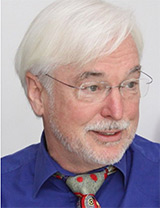Remembering Steve Rayner: the person who framed the geoengineering debate
 Steve Rayner framed the most important questions about geoengineering before most people had heard of the term. Crucially, through the Oxford Principles, he also offered a means to answer them.
Steve Rayner framed the most important questions about geoengineering before most people had heard of the term. Crucially, through the Oxford Principles, he also offered a means to answer them.
A prolific author and innovator celebrated on both sides of the Atlantic: he was listed in Wired Magazine’s 2008 Smart List as ‘one of the 15 people the next US President should listen to’.
For us, Professor Rayner, who passed away on January 17, will be most missed as a guiding light in the quest to govern the research and potential deployment of climate-altering technologies.
He was part of the advisory group that shaped our formation in 2016, and played a key role in the Royal Society’s 2009 Report ‘Geoengineering the climate: Science, governance and uncertainty’. Crucially, he was also the lead author of a set of principles to guide geoengineering research, which remains a seminal work in our field.
These Oxford Principles, endorsed by the UK government in 2009, may yet be his most enduring scientific legacy. Their exposition of geoengineering as a public good which demands governance, decisions with genuine public participation, and whose research requires complete disclosure and independent assessment, grows more important with every year.
Professor Rayner brought a breadth and clarity of thought much needed in this fraught field. He cut through the Gordian knot of competing definitions – a constant challenge to informed public debate – by reminding us that what mattered was not the category, but the impact.
In so doing, he kept us focused on the real-world impact of climate-altering technologies – not just physical, but also economic, political and societal.
He was not afraid to call out approaches he felt weren’t working – his 2007 paper The Wrong Trousers famously excoriated the Kyoto Protocol – but he always followed through with suggestions for another way.
We at C2G offer our deepest condolences to Professor Rayner’s family and loved ones. Our work is and will remain profoundly influenced by his ideas. We are grateful for his service, and remain committed to his conviction that transparent, inclusive governance is the bedrock of any consideration of climate-altering technologies.
The C2G Team